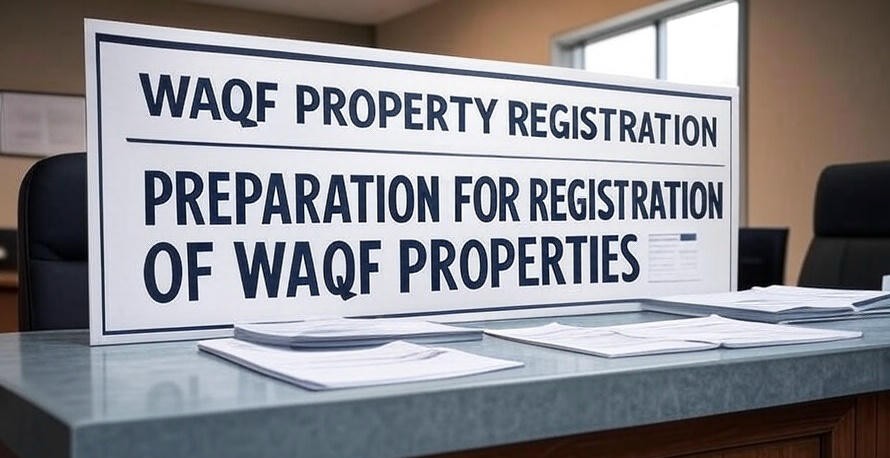INTRODUCTION
In an effort to simplify the registration and oversight of Waqf assets throughout India, the Central Government is getting ready to launch the UMEED site (Unified Waqf Management, Empowerment, Efficiency, and Development) on June 6. Under the guidance of the corresponding State Waqf Boards, this digital program requires that all Waqf properties be registered within six months.
This article will examine recent and historical developments pertaining to WAQF Properties. It will also look for solutions to some important questions.
THE CURRENT UPDATE
According to the new regulatory framework, assets titled in the name of women are ineligible for Waqf designation. However, the law underlines that such religious endowments should primarily benefit women, children, and economically disadvantaged groups. The registration process necessitates extensive property information, including measurements and geotagging for identification and monitoring.
Properties that fail to fulfill the registration deadline will be classified as contested and sent to Waqf tribunals for decision.
The launch follows the Waqf (Amendment) Act, 2025, which was enacted by both Houses of Parliament and obtained Presidential approval on April 5. The amended law aims to modify the governance of religious endowments under Islamic law, which was previously regulated by the Waqf Act of 1995.
WAQF AMENDMENT ACT, 2025
The Waqf (Amendment) Bill, 2025, approved by Parliament, seeks to streamline Waqf administration in India. It recommends revisions to the present Waqf Act of 1995, with a focus on openness, accountability, and better administration of Waqf properties. The bill establishes a three-tier system for waqf administration: the Central Waqf Council, State Waqf Boards, and individual waqfs. It also allows for non-Muslim representation on Waqf boards.
In essence, the Waqf (Amendment) Bill, 2025 proposes to revamp India’s Waqf administration, with a focus on transparency, accountability, and better management, while also resolving some of the system’s issues.
UNDER JUDICIAL SCRUTINY
The legislation, however, is currently under legal review, with various petitions filed before the Supreme Court questioning its constitutionality. Petitioners have expressed concerns over claimed executive overreach, claiming that the new law allows for non-judicial acquisition of properties, therefore breaching Muslim citizens’ rights and interfering with religious autonomy.
The Central Government has defended the law and requested the Supreme Court to dismiss the objections, claiming that the revisions are constitutionally sound and meant to improve openness and accountability in the management of Waqf endowments.
On April 17, the Supreme Court declined to halt the modified law, citing the Centre’s promise that some clauses would not be implemented immediately. During the hearing on May 27, the Court issued notices.
About Author

SAHIL YADAV, a law student at NLIU Bhopal, is a dedicated and passionate legal writer, who is keen to explore International law, Constitutional Law, Criminal Law, Forensic Psychology and publish research papers and articles on contemporary legal nuances and issues. He is also interested in the intersection of disciplines like history, psychology, political science, philosophy, and sociology with law.

